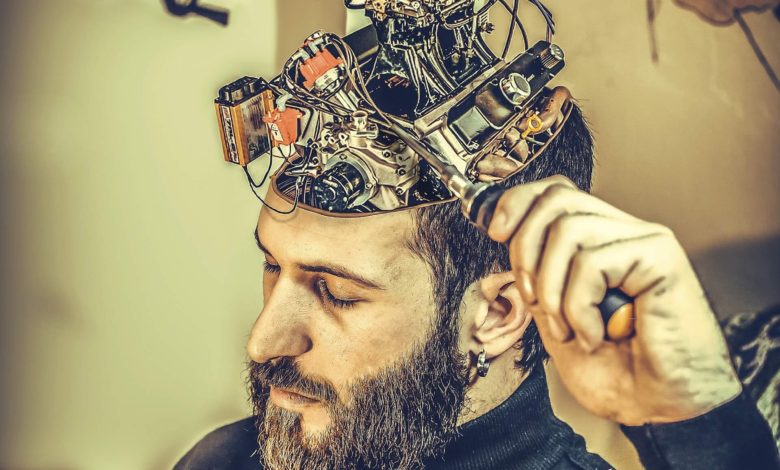Can Dopamine Increase Success?

To be happier, smarter, richer, stronger in relationships or someone who does more work… Or more creative or better focus on what he / she does… Which of these qualities do people want to have the most? A little more dopamine may be needed to access these. In this article, there are information about how the effects of this neurotransmitter make the person a more successful person.
Behavioral Effects
It Can Make You More Social and Extroverted: Dopamine and its pathways are associated with extroversion. In a study of 16 male patients with depression, high dopamine levels were associated with an extrovert personality. In contrast, low dopamine D2 / D3 receptor availability in one brain region (striatum) was associated with personal separation, withdrawal, and social phobia in another study of 14 healthy human volunteers. In addition, people with gene variants that cause increased dopamine activity are more extroverted.
In a study of 130 people, those with SNPs associated with a 40% higher expression of the gene encoding the DRD4 receptor and therefore higher dopamine activity had higher levels of extraversion. Specifically, the presence of the C allele in this SNP of the DRD4 gene in the carriers of the COMT A / A genotype was associated with higher levels of extraversion and hypomania than T.
Allele A has been associated with a one-third reduction in DRD2 gene D2 receptors as these SNPs. In a study conducted on 24 people, the extraversion scores of the carriers were significantly higher. These people may have higher dopamine activity (by decreasing the levels of this receptor) and higher pleasurable responses (through increased reward prediction error).
May Increase Motivation:
Also known as dopamine motivation molecule. It is responsible for intrinsic motivation and provides motivational / intrinsic impulse to do something. We do something because we find them rewarding. Dopamine is responsible for reward-seeking behavior, it is the reward signal in the brain. While activation of dopamine brain cells results in a good feeling / reward, its inactivation causes aversion. High, moderate, and low dopamine-induced euphoric, seeking, and aversive state concentrations in animal studies, respectively. Dopamine increases research and the pursuit of innovation. Curiosity and interest are important components of intrinsic motivation.
In different mammal species, there is a relationship between dopamine and positive experiences of discovery, new learning, and interest in one’s environment. People who experience flow states that are often intrinsically motivated in their daily activities have higher dopamine D2-receptor levels in certain brain regions. Conversely, low dopamine levels make humans and animals less likely to work for something. Dopamine blockade can seriously disrupt efforts to gain reward.
May Increase Social Dominance: Blocking the dopamine D2 receptor in primates and mice reduced social dominance in higher social class primates. In one study, D2 receptors increased by about 20% after social housing in monkeys that dominated but did not change in subordinates. D2 receptors can be changed by the environment only before a social structure is established. In a study of 14 human volunteers, the number of D2 / D3 receptors did not differ between them before a social hierarchy was established, but those that became dominant after the social structure was established developed higher D2 / D3 receptor activity. However, one study found that rearrangement of the social hierarchy in which some monkeys previously subjected became dominant (and some became dominant) only increased D 2/3 receptor activity in dominant monkeys in those previously subjected but not previously dependent.
Can Improve Socioeconomic Status: Socioeconomic status is mainly determined by educational score and type of profession (ie managers, professionals, small labor versus large business owners). A study in 42 healthy people found that those with higher socioeconomic status had more D2 / D3 receptors in two brain regions (caudate and putamen). However, this was not the case with 38 cocaine addicts. The study also linked higher D2 / D3 receptor availability to achieving a higher level of education.
May Increase Perceived Social Support: In the study discussed above, a similar correlation was found with perceived social support and D2 / D3 receptor activity (dopamine binding), as tested with a scale that assesses support from family, friends, and other significant individuals.
Novelty Can Boost Search: Dopamine promotes exploratory behavior in animals, which is the human equivalent of traveling to new places. High novelty seeking has often been associated with lower D2 receptor availability in the subcortical region, higher extracellular dopamine levels, and increased susceptibility to drug addiction. Higher dopamine (measured indirectly by MAO levels) is associated with higher sensation seeking. Serotonin counteracts the effects of dopamine by reducing sensory / novelty seeking, as seen in a study of 76 infants. A study of 130 adults found that women who are genetically more dopamine (carriers of the COMT A / A genotype) also have more novelty seeking. The novelty seeking score of 11.9 for A / G and G / G of A / A patients was 8.7.
Cognitive Effects
May Improve Memory and Learning: Dopamine activity in the brain plays a major role in memory and learning, and is required for long-term memory storage and retrieval, according to multiple animal studies. Dopamine points to important events and helps remember those that have motivational significance, so that memories are appropriate and accessible for future behavior. In a clinical study in 32 elderly people, administration of the dopamine precursor levodopa increased long-term episodic memory. Dopamine also plays an important role in working memory, which is the capacity to use information from short-term memory to guide our own actions. Studies in brain cells have found that dopamine increases the activity of those involved in this type of memory.
Serotonin also works with dopamine during memory formation. Activation of serotonin receptors can increase dopamine release in parts of the brain involved in cognition and memory formation (i.e. the prefrontal cortex and hippocampus), as seen in multiple animal studies. A study in rats found that dopamine release can cause an individual to be motivated by certain stimuli and change their behavior accordingly. Therefore, it plays an important role during reward-oriented learning.
May Increase Attention and Focus: Dopamine dysfunction in the frontal lobes can cause reduced attention and even attention deficit disorders such as ADHD, as seen in various studies in rats and primates. Moderate dopamine spikes (slightly increasing the positive effect) improved the capacity to be mindfully effective between tasks in a small study of 18 undergraduate students. In an imaging study of more than 200 people, those with higher dopamine levels in the brain (due to a polymorphism in an enzyme that determines dopamine flux) more effectively drew attention to stimuli related to ongoing tasks.
May Boost Creativity: A study of 100 healthy people showed that creativity is based on dopamine (specifically the interaction between the frontal and striatal dopaminergic pathways). However, creativity is complex and different appearances can be influenced by different dopaminergic systems. Dopamine was first associated with creativity, and a clinical study in 27 people with Parkinson’s found that they developed enhanced verbal and visual creativity when treated with dopamine-boosting drugs. Dopamine is concerned with cognitive flexibility and openness to new experiences, two of the main components of creativity and creative thinking.





